Are the Sinaloa Cartel's 'Chapitos' really getting out of the fentanyl business?
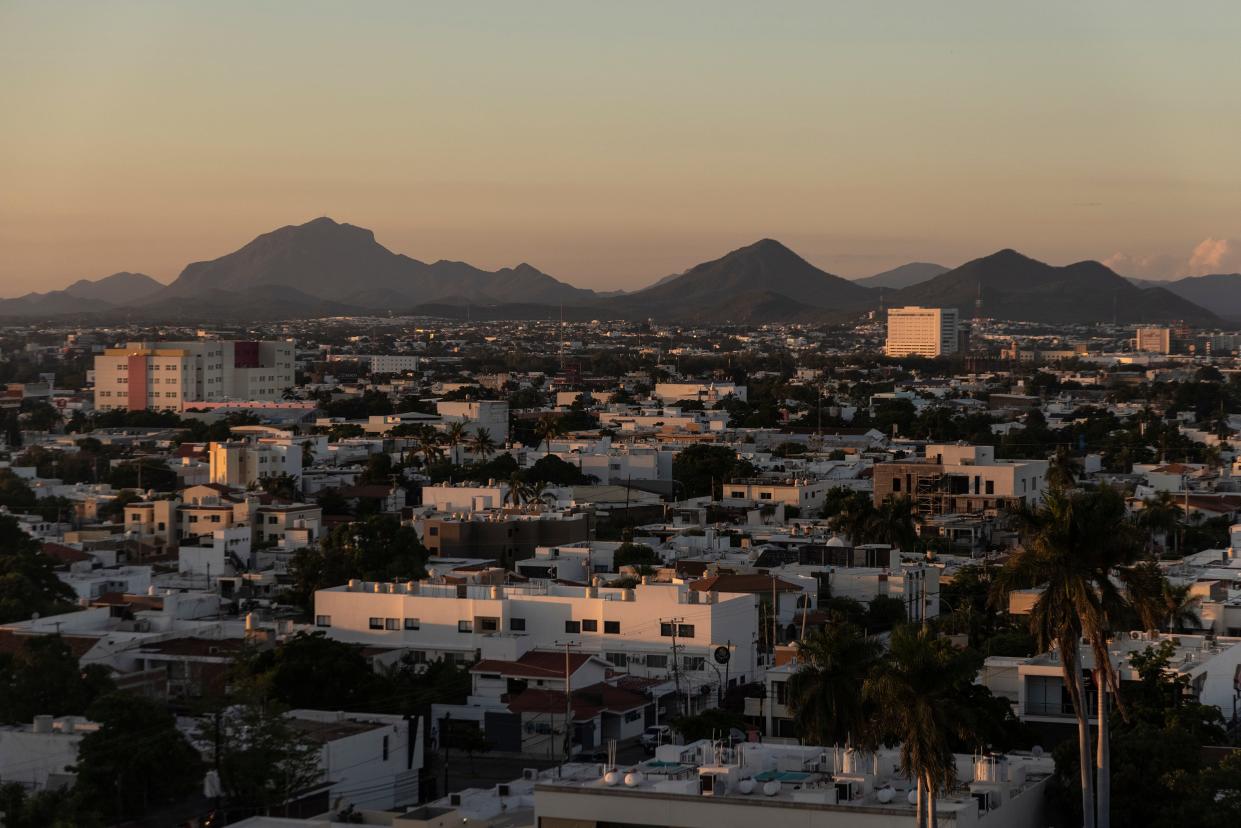
CULIACáN, Mexico ? “Nobody is producing fentanyl anymore. Whoever does will get killed,” a Sinaloa Cartel commander told The Louisville Courier Journal, part of the USA TODAY Network, here in Culiacán, the cartel's home base.
“There are still people who disobey, and those are the ones dying,” said the commander, who spoke on the condition of anonymity.
The supposed ban on the synthetic opioid made headlines in October when "narco-messages" signed by the Chapitos cartel appeared around Culiacán saying the cartel prohibits the trafficking, sale or production of fentanyl.
The Chapitos is a faction of the Sinaloa Cartel led by the sons of Mexican drug kingpin Joaquín “El Chapo” Guzmán. The Sinaloa Cartel is one of the most powerful and pervasive drug trafficking organizations in the world, according to U.S. law enforcement.
“Due to the ongoing misinformation of some media and the obvious omission of the government in not investigating and prosecuting the true culprits of this epidemic, in Sinaloa, the sale, manufacture, transportation, or any type of business that involves the substance known as fentanyl is strictly prohibited, including the sale of chemicals for its production,” the messages, scrawled on white blankets and hung from overpasses and bridges, read.
“We have never been nor will we be related to that business. You’ve been warned, sincerely: Chapitos.”
Last month, the U.S. Department of the Treasury’s Office of Foreign Assets Control sanctioned 13 Sinaloa Cartel members and four Sonora, Mexico-based entities related to a significant portion of the illicit fentanyl and other deadly drugs trafficked into the United States, according to a statement.
The agency said it worked closely with the Mexico government, including Mexico’s Financial Intelligence Unit.
Despite the messages spread in Culiacán, some experts said the Chapitos' story should be treated with caution because the numbers don’t match the message.
“From my perspective, it seems like a lot of propaganda,” said Derek Maltz, a former U.S. Drug Enforcement Administration official.
“And the reason I say that is because if you look at the numbers, we're seizing record levels, massive amounts of the M30 pills coming through the border into America, like we've never seen before.”
'Chapitos under pressure'
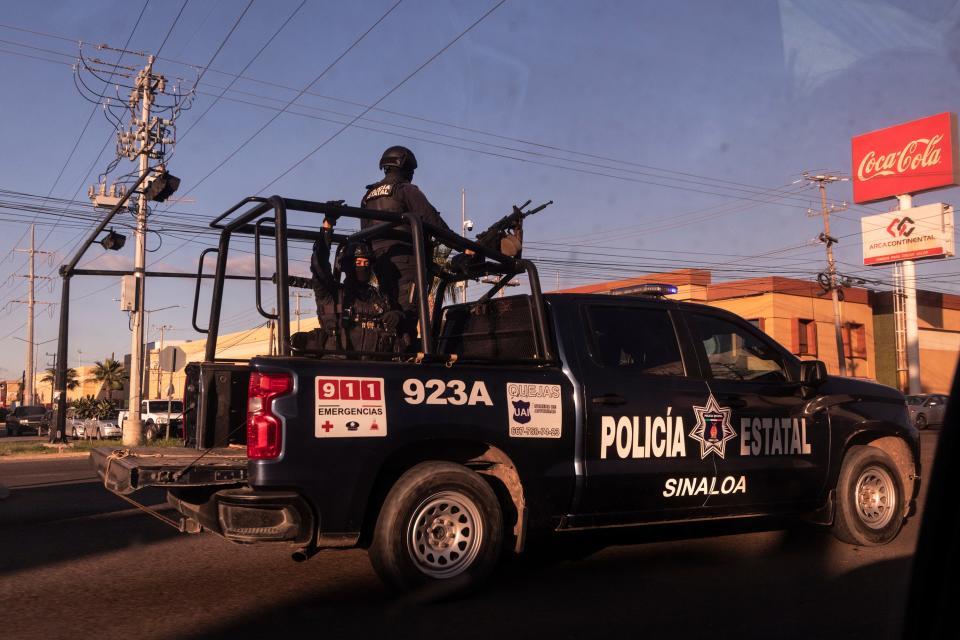
Record amounts of fentanyl coming across the border from Mexican drug cartels have pushed law enforcement in both countries to increase efforts to stop the flow.
One of the Chapitos' leaders, Ovidio Guzmán, was extradited to the U.S. in September after his arrest in Culiacán earlier in the year.
U.S. Attorney General Merrick Garland said Guzman's extradition was the most recent step in the Justice Department’s effort to attack every aspect of the cartel’s operations.
“I think it's clear that the Chapitos are feeling under pressure from the United States law enforcement and from the Mexican security forces,” said journalist Ioan Grillo, author of the “El Narco” trilogy.
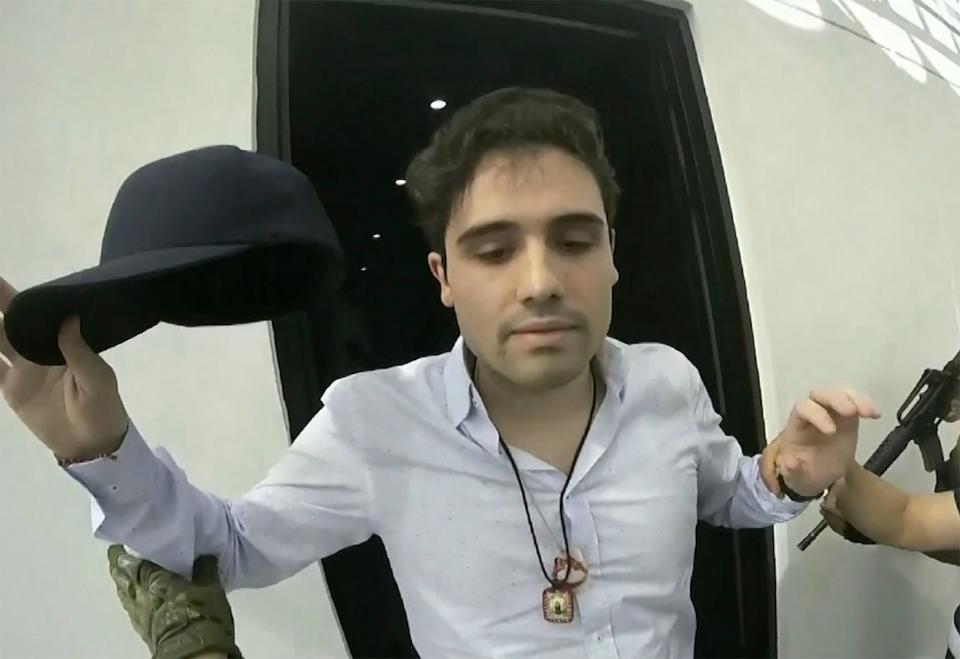
“The level of deaths in fentanyl has created massive political pressure to go after the culprits, and the U.S. law enforcement put the Chapitos as the most visible public figures behind this.”
President Joe Biden is getting pressure about the level of fentanyl deaths, Grillo said, so the administration wants results and some symbolic captures.
According to the National Institute for Drug Abuse, in 2021 more than 106,000 people in the U.S. died from a drug overdose, many of them fentanyl-related.
“The Mexican government wants to capture people like Ovidio, so (the cartel is) in a very difficult position," Grillo said. "I believe that the campaign of saying we are no longer making fentanyl is an attempt to try to reduce their chance of being arrested.”
Fear and uncertainty in Culiacán

“I used to work cooking fentanyl,” said an elderly man, talking about his experience working for a minor drug trafficking faction in Culiacán.
“Now, it’s really hard," he said. "They (Chapitos) made us stop. We haven’t been working for the past six months.”
The man, who spoke on the condition of anonymity out of fear of retaliation, said he worked for nearly two years at a makeshift drug lab.
Other low-level cartel affiliates interviewed by The Courier Journal in Culiacán expressed their desire to continue making fentanyl but said they are too scared to take the chance.
“I could still produce it, but I’d risk my life. I could get killed. It’s scary because they have people everywhere. It’s better to leave things as they are right now until they resume production again,” the elderly man said.
Grillo said it’s unclear how much this all really means.
“Are they just saying this but still trafficking? Are they genuinely stopping trafficking for a bit? Are they reducing the amount of trafficking operations?” he questioned.
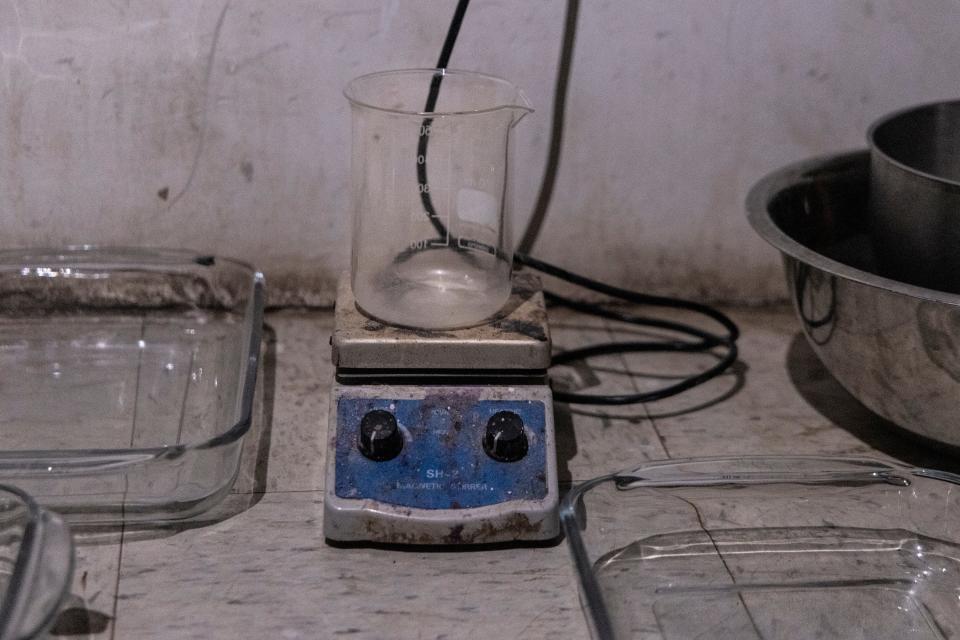
He said there are different scenarios within this narrative.
“One is they genuinely want to stop production for the time being to try and take the heat off themselves. The other is they're stopping some people but letting other people produce. So they're still making some money out of this but at the same time hitting certain dealers. There definitely seems to be something there. But it's hard to read exactly.”
Supply and demand
Regardless of whether the ban on fentanyl is real, experts say, there is indeed a business strategy behind all of it.
Maltz, the former DEA official, said the Sinaloa Cartel is a multibillion-dollar-a-year enterprise, and fentanyl has been a huge moneymaker.
Maltz said the price of fentanyl pills available illegally in the U.S. has plummeted.
"The profit is being destroyed because maybe there are way too many independent manufacturers of fentanyl, which is now causing competition to the Sinaloa Cartel," he said. b“It’s a strategic decision to put out messaging, to shut down these independent lab operators, kill them if possible. ... If too many pills are produced, then the availability will be so widespread that it will bring down the price, which brings down profits.”
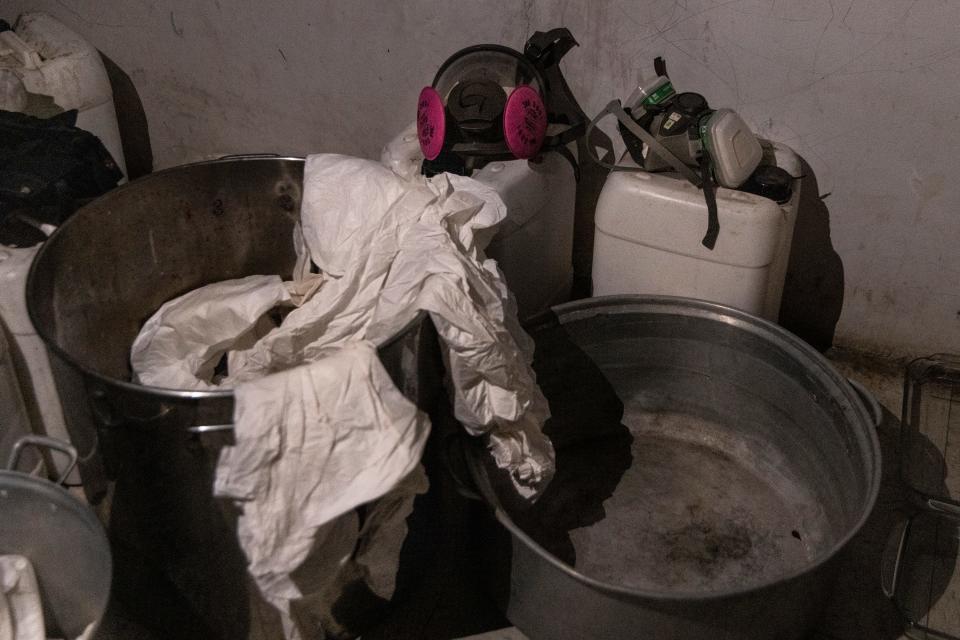
Some argue the cartel, besides taking the heat off the operation, also is trying to scrub its image. But Juan Carlos Montero, a professor at the Tecnológico de Monterrey, says it's too late for that.
“It’s too late if you really think about self-regulation and stopping producing fentanyl. ... They have already been identified.
"The cessation of activities does not exempt the responsibility of previous production."
Signs of weakness?
“I’m in charge of 30 fentanyl labs," the Sinaloa Cartel commander told The Courier Journal. "We used to produce 5 tons daily, but now there is no longer production. What is being sold is what is left in stock.”
Montero, whose teachings focus on public policy and security, said the narrative is not enough to make them look as they're doing something good. Instead, he said, the Chapitos are showing weakness.
"It seems to me that they are just exposing themselves, showing that the U.S. government is on top of them," he said. "They are giving a sign of weakness, a sign that they feel persecuted, they feel cornered. And I think that speaks to the weakness of the cartel compared to the United States."
If the ban is genuine, Montero questions how long the small producers be willing to resist the urge to make money. “When one of the criminal groups takes a step back, another criminal group will occupy those positions in the illicit market,” he said.
"This is assuming that the criminal organization can be controlled internally, because if not, these small groups must be asked how long they are going to endure, because it is not only about profits. It is also about paying debts, and in that sense, the criminal group can face important internal divisions that can lead to violence, fractures and, above all, more conflict."
The commander did not deny that the cartel is weakened.
While touring one of his idle labs, full of protective gear, jars with chemical precursors and the tools to make fentanyl and other drugs, he explained what he meant.
"The cartel is weakened, but let me explain to you, this is in terms of production. We don’t have enough crystal and fentanyl now.
"But not cocaine," he said with a laugh. "We have plenty of that. The Americans will never stop buying it."
Cristopher Rogel Blanquet is a photojournalist based in Mexico City. Karol Suárez is a Venezuela-born journalist based in Mexico City. They are contributors to The Louisville Courier Journal, part of the USA TODAY Network. Follow Suárez on Twitter at @KarolSuarez_.
This article originally appeared on Louisville Courier Journal: Experts discuss Sinaloa Cartel Chapitos reported exit from fentanyl
